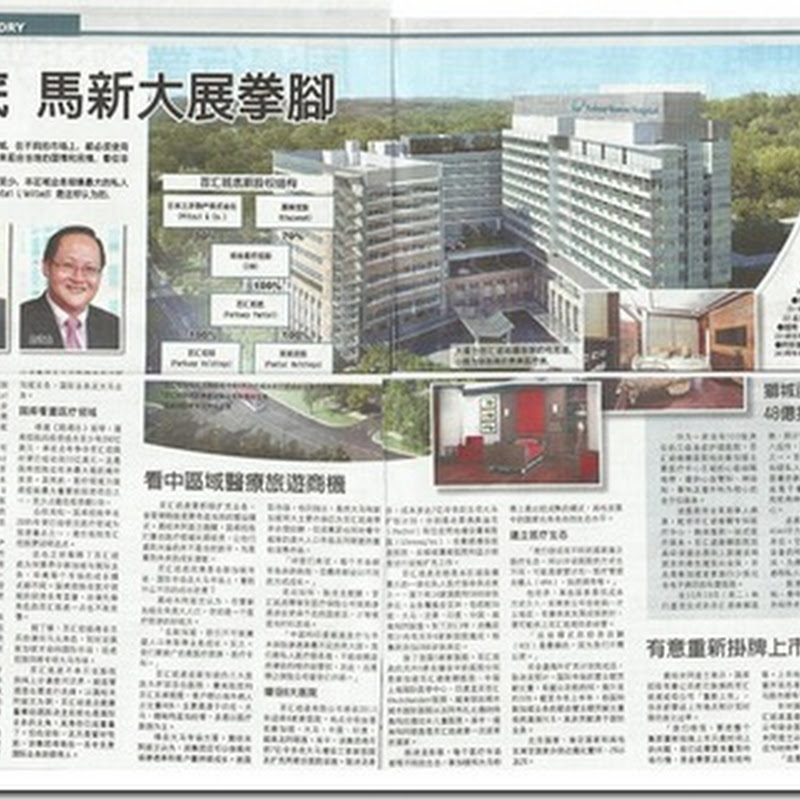It plans to bid for some RM4 billion worth of government infrastructure jobs in Malaysia in the next six months and expand its building and water concession operations abroad.
The diversified entity, which is also into property development and recently ventured into oil palm plantations, also intends to raise funds possibly via a rights issue, private placement of shares in the company or a bond sale next year (2010).
The money will be used to refinance the company’s existing bank loans and fund its oil palm ventures.
Gadang had been pre-qualified for earthwork jobs under the planned new low-cost carrier terminal near the Kuala Lumpur International Airport, besides the 300MW power plant in Kimanis, Sabah, a project jointly owned by Petronas Gas Bhd and Yayasan Sabah.
Gadang, which has also expressed interest in the Pahang-Selangor water transfer project and the central sewerage facility job in Melaka, is planning to participate in highway projects under the country’s public-private partnership initiatives.
Public-private colloboration will be a crucial theme under the 10th Malaysia Plan from 2011 to 2015 in line with policymakers’ intention to encourage private firms to play a bigger role in the local construction sector. This essentially involves privately owned companies financing and managing the construction and maintenance of government infrastructure projects.
Regionally, Gadang is negotiating with authorities in Vietnam to secure river dredging and highway projects in the Indochina nation where the Malaysian firm is conducting feasibility studies for a two-phase water supply project.
In November 2008, Gadang’s unit Green Water Investment Pte Ltd signed a memorandum of understanding with Vietnam’s Long An Province People’s Committee as initial arrangements for the Malaysian firm’s participation in the construction and investment in a water concession of up to 35 years.
The initial phase of the project was valued at about RM50 million and details of the water supply job involving a capacity of 300,000 cubic metres per day were expected to be finalised next year. For now (Nov 2009), Gadang already owns five water concessions in Indonesia.
Gadang’s foray in oil palm plantations is worth noting. The venture in Ranau, Sabah, would include upstream and downstream operations and income from its plantation unit was expected to be registered in the company’s books by the financial year (FY) ending May 31, 2013.
The upstream portion is expected to comprise two phases with a collective plantation land area of around 6,000ha (15,000 acres). Of the total, some 2,000ha will be developed under the initial phase, followed by the rest.
Gadang is committing about RM25 million as capital expenditure (capex) for the first phase where the money will be used to solely finance the cost of planting the trees. Gadang expects the oil palm trees under the initial phase to generate a yearly turnover of some RM20 million upon maturity.
In April 2009, Gadang via its wholly owned subsidiary Desiran Impian Sdn Bhd signed two agreements with two oil palm plantation landowners. The deals grant Gadang the right to develop 2,072ha in Ranau in collaboration with the landowner.
Talks for the subsequent 4,000ha are ongoing and the portion will involve a capex of around RM45 million. He said Gadang was seeking a licence to build an oil palm mill nearby within five years.
On the company’s property development business, the group was negotiating with landowners in the Klang Valley to expand its landbank. Gadang may either acquire the land from the owners or initiate joint-venture developments with them.
For now, the real estate developer with RM637 million worth of current and upcoming projects has 114ha of undeveloped land across Selangor, Johor, Penang and Kedah. Completed real estate projects in the Klang Valley by Gadang include the “Seri Aman Heights” residential job in Sungai Buloh and Prima Impian mixed development in Segambut.
Gadang’s financials have improved. Net profit rose by an annual pace of 51 % to RM3.85 milion in the first quarter ended Aug 31, 2009 from RM2.55 million a year earlier, as revenue climbed 10.3% to RM58.41 million from RM52.96 million.
While revenue had increased as the company undertook more construction jobs and raked in more real estate sales, its profitability was, however, stifled by costlier building materials.
Tong's Portfolio of The Edge as at January 21, 2026
-
Analysis of Malaysian Investment Portfolio (As of Jan 21, 2026)Portfolio
Overview
-
Initial Capital: RM200,000 (Oct 10, 2014)
-
...
4 hours ago






















































No comments:
Post a Comment